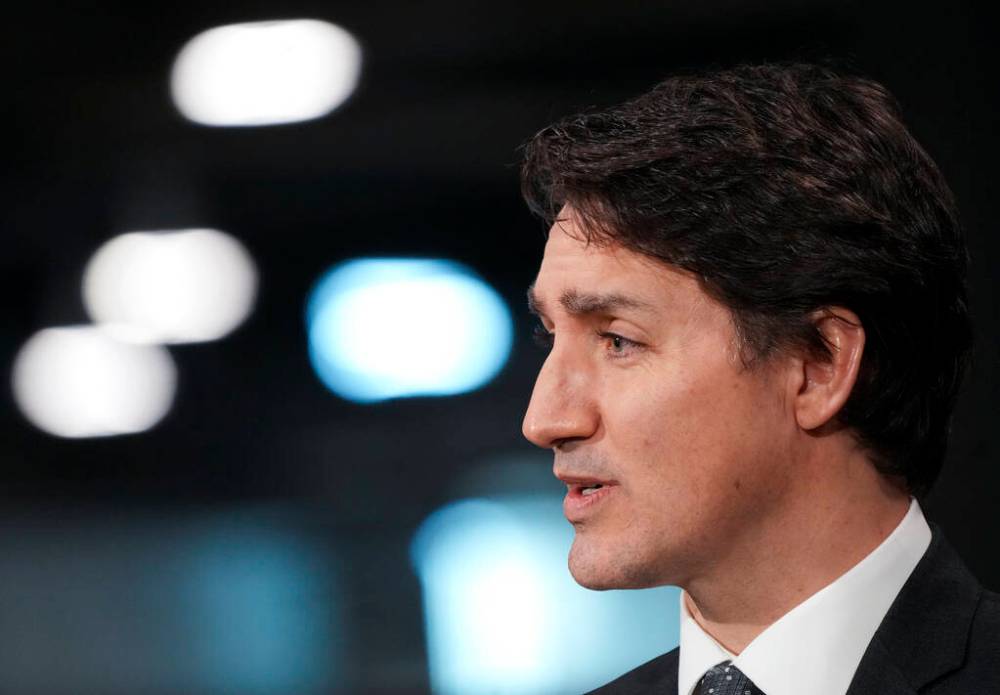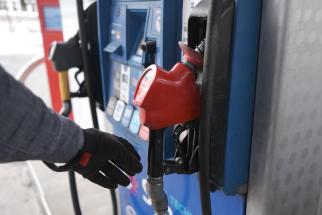Carbon-tax hike adds insult to gas-price injury Record-setting punishment at the pump has more impact on driving behaviour, gives Ottawa reason to postpone increase
Read this article for free:
or
Already have an account? Log in here »
To continue reading, please subscribe:
Monthly Digital Subscription
$0 for the first 4 weeks*
- Enjoy unlimited reading on winnipegfreepress.com
- Read the E-Edition, our digital replica newspaper
- Access News Break, our award-winning app
- Play interactive puzzles
*No charge for 4 weeks then price increases to the regular rate of $19.00 plus GST every four weeks. Offer available to new and qualified returning subscribers only. Cancel any time.
Monthly Digital Subscription
$4.75/week*
- Enjoy unlimited reading on winnipegfreepress.com
- Read the E-Edition, our digital replica newspaper
- Access News Break, our award-winning app
- Play interactive puzzles
*Billed as $19 plus GST every four weeks. Cancel any time.
To continue reading, please subscribe:
Add Free Press access to your Brandon Sun subscription for only an additional
$1 for the first 4 weeks*
*Your next subscription payment will increase by $1.00 and you will be charged $16.99 plus GST for four weeks. After four weeks, your payment will increase to $23.99 plus GST every four weeks.
Read unlimited articles for free today:
or
Already have an account? Log in here »
Hey there, time traveller!
This article was published 04/03/2022 (1381 days ago), so information in it may no longer be current.
There are a few good reasons why the federal government should cancel its plan to increase carbon taxes next month. Politically, the idea of jacking up taxes at the pump when gas prices (and the cost of almost everything else) are going through the roof may not go over well with voters. But there are economic and environmental reasons, too, why Ottawa should hold off on the planned tax hike.
The Trudeau government imposed a $20-per-tonne carbon tax in 2019 in provinces such as Manitoba that did not have their own similar tax scheme. The so-called federal backdrop tax has increased by $10 per tonne each year since, or about 2.2 cents per litre of gasoline annually. It’s expected to rise from 8.8 cents to 11 cents per litre April 1.
The stated objective of the tax is to use price signals to discourage people from burning fossil fuels: the higher the price, the more likely people will conserve and/or switch to alternative and more environmentally sustainable energy and transportation options.
The stated objective of the tax is to use price signals to discourage people from burning fossil fuels.
The economic theory is sound. Energy consumption is, to some degree, elastic in that it responds to price changes. The trick is figuring out how prices affect demand. That’s not easy to do with fuel consumption, which tends to be less elastic than most goods. It takes more than a few cents of taxes on a litre of fuel to affect driver behaviour.
It’s unlikely the 8.8 cents-per-litre carbon tax imposed so far has had any impact on demand. Most people probably don’t even know it’s there. Will adding another 2.2 cents a litre April 1 make a difference on consumer behaviour? Probably not.
However, a 15-cent price jump at the pumps within a few days — which is what we saw in Winnipeg this week — may. It’s the kind of sudden spike in prices that will probably make people think twice about where they drive, how much they drive and what they drive. It will likely rise further in the comings months, given the geopolitical events in eastern Europe.

The question then becomes: why do we need a carbon tax if market prices are already providing sufficient price signals to reduce demand?
Gasoline prices in Winnipeg, including this week’s increase, have climbed 48 cents per litre over the past year, according to Statistics Canada figures. Of that, only 2.2 cents came from the carbon tax. The increase in market prices over the past year is more than five times what the carbon tax has added to the cost of fuel since 2019.
In fact, the price increase in one year is more than the full $170-per-tonne carbon tax the federal government plans to apply by 2030 (about 37 cents per litre). With gasoline prices unlikely to come down any time soon, if ever, market prices are already fulfilling the objective of the carbon tax.
Which is why it should be scrapped, at least for gasoline and diesel.
Adding more taxes on top of soaring costs at the pump would do little, if anything, to impact consumer behaviour. But it would take more money out of people’s pockets and contribute to inflation. It would also disproportionately harm small business and municipalities whose finances have been severely eroded by the COVID-19 pandemic.
Fuel prices are one of the major drivers of inflation (already up 5.1 per cent in Canada in January and growing) in large part because of the impact transportation costs have on the price of most goods, including food.
Fuel prices are one of the major drivers of inflation (already up 5.1 per cent in Canada in January and growing) in large part because of the impact transportation costs have on the price of most goods, including food.
It could be argued that carbon-tax rates should continue to escalate on top of increasing fuel prices because it would further strengthen price signals required to discourage the burning of fossil fuels. Perhaps. But there would be costs associated with that, including inflationary and economic.
A Parliamentary Budget Officer report released last year estimated the federal carbon tax would reduce Canada’s real GDP by 0.8 per cent by 2030.
At the very least, the federal government should hold off on any further carbon-tax increases until — or if — fuel prices fall. There are many other proven ways of reducing greenhouse-gas emissions other than taxing fuel, including through innovation and regulatory regimes.
Increasing the tax further under current economic conditions would be nothing more than a political exercise by the federal Liberals. It could turn out to be a very unwise one.
tom.brodbeck@freepress.mb.ca

Tom has been covering Manitoba politics since the early 1990s and joined the Winnipeg Free Press news team in 2019.
Our newsroom depends on a growing audience of readers to power our journalism. If you are not a paid reader, please consider becoming a subscriber.
Our newsroom depends on its audience of readers to power our journalism. Thank you for your support.






